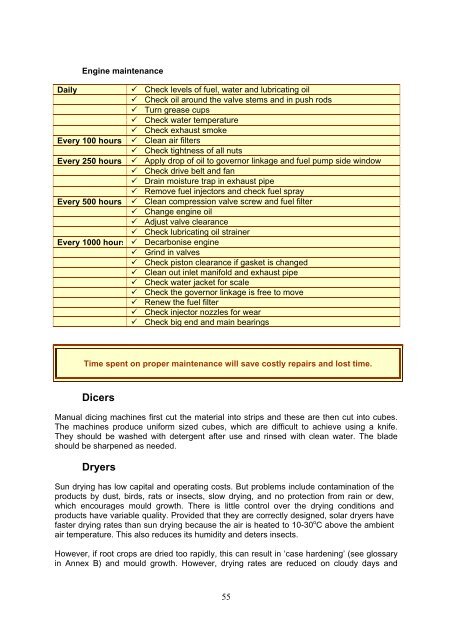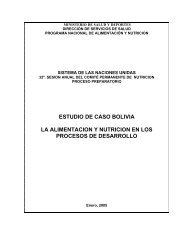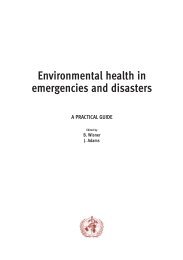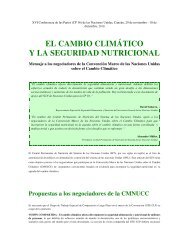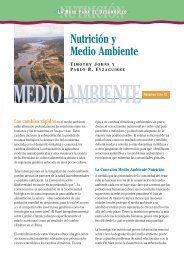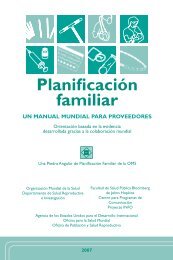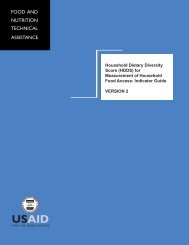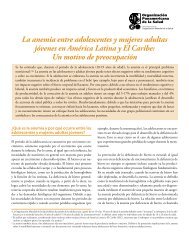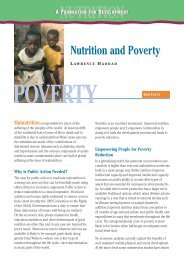Glossary and Abbreviations - Unido
Glossary and Abbreviations - Unido
Glossary and Abbreviations - Unido
You also want an ePaper? Increase the reach of your titles
YUMPU automatically turns print PDFs into web optimized ePapers that Google loves.
Daily<br />
Engine maintenance<br />
Every 100 hours<br />
Every 250 hours<br />
Every 500 hours<br />
Check levels of fuel, water <strong>and</strong> lubricating oil<br />
Check oil around the valve stems <strong>and</strong> in push rods<br />
Turn grease cups<br />
Check water temperature<br />
Check exhaust smoke<br />
Clean air filters<br />
Check tightness of all nuts<br />
Apply drop of oil to governor linkage <strong>and</strong> fuel pump side window<br />
Check drive belt <strong>and</strong> fan<br />
Drain moisture trap in exhaust pipe<br />
Remove fuel injectors <strong>and</strong> check fuel spray<br />
Clean compression valve screw <strong>and</strong> fuel filter<br />
Change engine oil<br />
Adjust valve clearance<br />
Check lubricating oil strainer<br />
Every 1000 hours Decarbonise engine<br />
Grind in valves<br />
Check piston clearance if gasket is changed<br />
Clean out inlet manifold <strong>and</strong> exhaust pipe<br />
Check water jacket for scale<br />
Check the governor linkage is free to move<br />
Renew the fuel filter<br />
Check injector nozzles for wear<br />
Check big end <strong>and</strong> main bearings<br />
Time spent on proper maintenance will save costly repairs <strong>and</strong> lost time.<br />
Dicers<br />
Manual dicing machines first cut the material into strips <strong>and</strong> these are then cut into cubes.<br />
The machines produce uniform sized cubes, which are difficult to achieve using a knife.<br />
They should be washed with detergent after use <strong>and</strong> rinsed with clean water. The blade<br />
should be sharpened as needed.<br />
Dryers<br />
Sun drying has low capital <strong>and</strong> operating costs. But problems include contamination of the<br />
products by dust, birds, rats or insects, slow drying, <strong>and</strong> no protection from rain or dew,<br />
which encourages mould growth. There is little control over the drying conditions <strong>and</strong><br />
products have variable quality. Provided that they are correctly designed, solar dryers have<br />
faster drying rates than sun drying because the air is heated to 10-30 o C above the ambient<br />
air temperature. This also reduces its humidity <strong>and</strong> deters insects.<br />
However, if root crops are dried too rapidly, this can result in ‘case hardening’ (see glossary<br />
in Annex B) <strong>and</strong> mould growth. However, drying rates are reduced on cloudy days <strong>and</strong><br />
55


